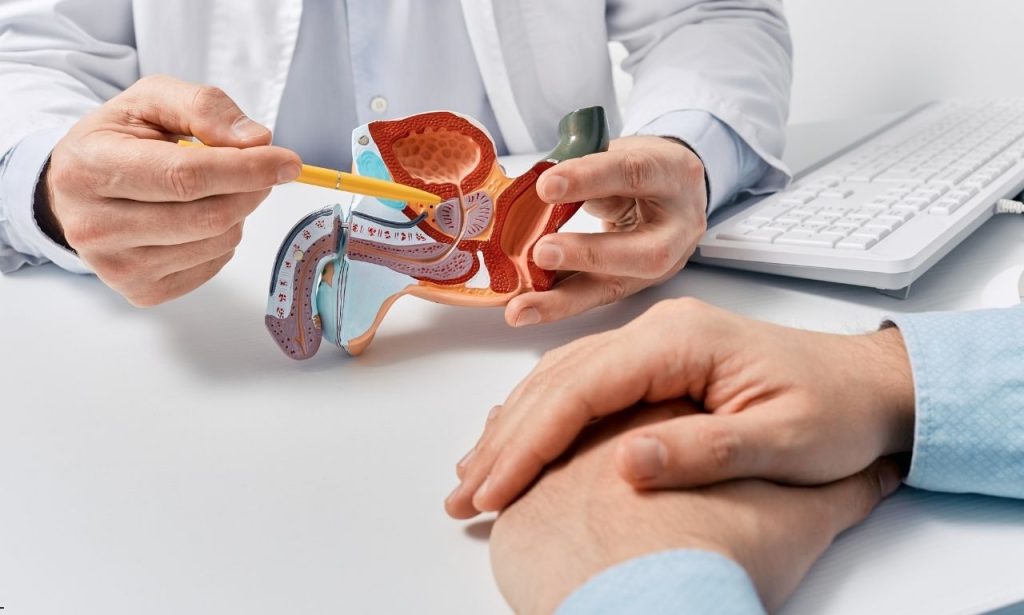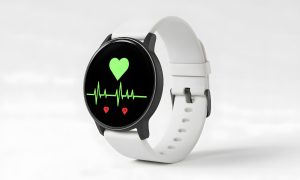Let’s face it—most men rarely think about their prostate until something feels off. But maintaining prostate health shouldn’t wait until discomfort strikes. This walnut-sized gland plays a vital role in male reproductive function. It also influences urinary control and overall well-being. Unfortunately, prostate issues like benign prostatic hyperplasia or prostate cancer can sneak up silently.
You don’t need to wait for symptoms to appear. By being proactive, you can reduce your risk and improve your quality of life. With the right habits, diet, and screenings, staying ahead of prostate problems becomes manageable. Here’s how to keep your prostate in top shape, even as you age.
Consider a Mediterranean Diet

One of the most powerful tools to support prostate health is your fork. And it’s not about giving up taste—it’s about eating smarter.
The Mediterranean diet is more than a trend. It’s a time-tested way of eating that supports heart and prostate health. This diet emphasizes fruits, vegetables, whole grains, legumes, and healthy fats, such as olive oil. Instead of heavy red meats, it includes fish, nuts, and seeds.
Why does this matter? Red meats and saturated fats have been linked to increased prostate cancer risk. On the other hand, antioxidant-rich foods—especially tomatoes, leafy greens, and dried shiitake mushrooms—help combat inflammation and support cellular health. Lycopene, the bright red pigment found in tomatoes and pasta sauce, may lower prostate cancer risk by reducing oxidative stress.
You don’t have to change everything overnight. Start by swapping red meat for salmon. Replace white bread with whole-grain bread. Add a leafy salad to your dinner plate. These small changes build up and can have a big impact.
Also, avoid sugar-sweetened drinks. These raise your blood sugar and contribute to obesity, which increases prostate-related issues. Stick with water, green tea, or black coffee in moderation.
Skip Vitamin E Supplements
It’s easy to assume all supplements help. But not every vitamin belongs in your cabinet.
Vitamin E, in particular, has been marketed for men’s health. However, research tells a different story. Large studies like the SELECT trial found that vitamin E supplements may actually increase the risk of prostate cancer.
If you already take multivitamins, check the label. You might be getting more than you think. Too much vitamin E from synthetic sources may cause more harm than good.
Instead of reaching for pills, focus on getting vitamins from food. Almonds, sunflower seeds, and spinach contain natural vitamin E, which the body processes more safely. As always, talk to a healthcare professional before starting or stopping any supplement. What works for one person may not work for another.
Get Some Sun
Here’s something simple: step outside. Your body needs sunlight to produce vitamin D, and this vitamin plays a crucial role in prostate health.
Low vitamin D levels have been associated with aggressive prostate cancer in several studies. While this doesn’t prove causation, the connection is worth noting. Especially for men who live in northern climates or work indoors.
Just 10 to 15 minutes of sun exposure on your arms and face a few times a week may be enough. If you wear sunscreen or have darker skin, your vitamin D production may be lower. In that case, a blood test can help determine if you’re deficient.
Still, don’t overdo it. Too much sun can damage your skin and raise the risk of skin cancer. Balance is key. And if your doctor recommends a supplement, vitamin D3 is often better absorbed than D2.
Get Screened
This isn’t anyone’s favorite topic, but it matters. Prostate cancer is one of the most common cancers among men. The earlier it’s caught, the better the outcome.
Screening usually involves a PSA (Prostate-Specific Antigen) blood test and sometimes a digital rectal exam. PSA levels can rise due to cancer, inflammation, or even an enlarged prostate. That’s why test results should always be interpreted with a doctor’s guidance.
When should you get screened? It depends. If you’re 50 or older, or if prostate cancer runs in your family, talk to your physician about starting earlier. Men with a BRCA2 gene mutation or a strong family history may need even earlier monitoring.
Screening isn’t one-size-fits-all. It’s a conversation—one worth having. If something is off, imaging tools like Prostate MRI or the Prostate Health Index (PHI) can offer more clarity. Early detection can save lives.
Stop Smoking to Keep Your Prostate Healthy
You already know smoking is bad for your lungs and heart. But did you know it’s rough on your prostate too?
Studies show that smoking increases the risk of aggressive prostate cancer and may interfere with treatment outcomes. It also affects blood flow, which can lead to sexual dysfunction and urinary problems—both of which are tied to prostate health.
And it’s not just cigarettes. Vaping, cigars, and chewing tobacco carry risks as well. They increase inflammation and harm blood vessels. Even secondhand smoke isn’t harmless.
Quitting isn’t easy, but it’s one of the best decisions you’ll ever make for your body. Nicotine patches, counseling, support groups, and prescription medications can all help. Your future self—and your prostate—will thank you.
Personal Experience: A Wake-Up Call
A friend of mine, Mark, ignored his frequent urination and discomfort for months. He chalked it up to age and coffee. Only after some persuasion did he visit a urologist. The diagnosis? Benign Prostatic Hyperplasia (BPH). Thankfully, it wasn’t cancer, but it impacted his life in big ways—sleep, work, even relationships.
With medication, dietary changes, and pelvic floor exercises, he saw massive improvement. Mark’s story isn’t rare. Many men delay seeking help, even when symptoms persist. Let this be your reminder: it’s not weak to check in on your health—it’s wise.
Conclusion
So, what steps should you take to maintain good prostate health? Start with the basics. Eat well. Move daily. Get screened. Don’t smoke. Protecting your prostate isn’t about fear—it’s about freedom.
Small changes today can prevent big problems tomorrow. Whether you’re 35 or 65, it’s never too early—or too late—to care for this vital gland. Talk to your doctor. Listen to your body. And make prostate health a priority, not an afterthought.
Also Read: Biggest Challenges Nonprofit Clinics Face After COVID
FAQs
Fruits, vegetables, whole grains, and healthy fats—especially from the Mediterranean diet—support prostate function and reduce inflammation.
Some studies suggest regular ejaculation may reduce prostate cancer risk, but more research is needed.
Most men should consider screening at age 50. If you have a family history, talk to your doctor earlier.
PSA tests can detect issues early but may produce false positives or negatives. Always interpret results with your doctor.


